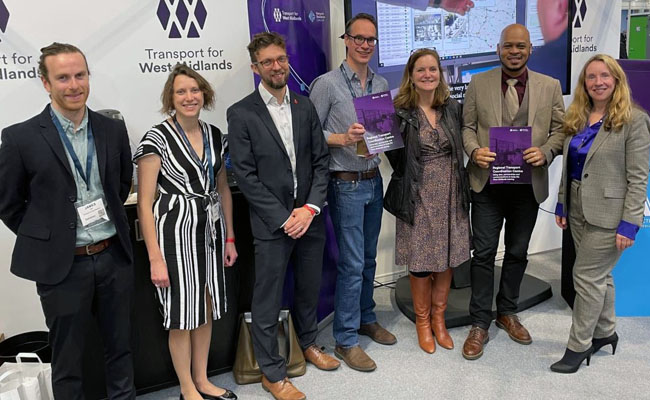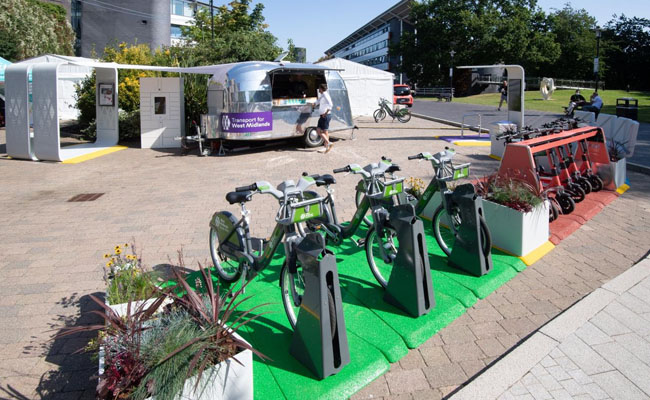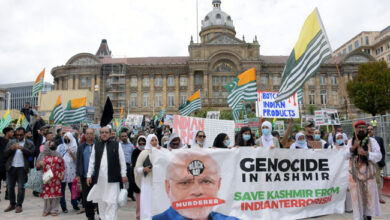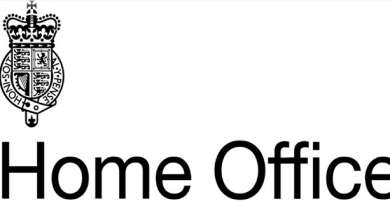West Midlands sets out vision for green transport revolution at Highways UK conference

Birmingham: The West Midlands is driving towards a clean and green transport future as the region seeks better ways of managing our road networks and harness new ideas and new technology.
That was the message from West Midlands Combined Authority (WMCA) interim chief executive Laura Shoaf in a keynote speech to transport industry leaders at the Highways UK conference at the NEC in Birmingham.
The conference is taking place in the West Midlands, widely recognised as the heart of UK vehicle manufacturing and now a centre for transport innovation, through initiatives such as the £22 million Future Transport Zone – which is trialling ground-breaking projects such as mobility credits and demand responsive bus services.

The new mobility hub, which will bring small scale transport services such as bike hire and ev charging into local communities, has been on display at the exhibition ahead of a real world trial.
As world leaders meet at COP 26 in Glasgow to set new carbon reduction targets and net-zero deadlines, Laura told the conference that the transport sector would play a leading role in delivering both the UK’s net-zero ambitions and the country’s post Covid-19 recovery.
She said: “To meet our ambitions for net carbon zero and encourage better use of our existing roads and highways, we must think about all types of road users, from cyclists to scooters, cars, taxis and buses.
“A part of the £1 billion awarded to the West Midlands from the government’s City Region Sustainable Transport Settlement fund, will be used to put measures in place to support this goal, including the installation of more than 1,000 EV charging points and the creation of new cycle lanes, alongside the expansion of our bus, train, and tram provision.”
She said the transport sector faces a long and difficult transition to net-zero which requires a change in people’s thinking.
“By continuing to consider the region’s transport methods holistically and through our ongoing focus on innovation and creative problem-solving, we will be able to reduce the damage that we are doing to our planet while ensuring faster, more efficient and more sustainable methods for transport – helping to keep the region and UK moving. “
Until recently Laura was managing director of Transport for West Midlands (TfWM), which is part of the WMCA, and is the current chair of the national Urban Transport Group.

She explained that roads are enablers of economic growth and connected people to jobs, schools, health services and friends and family.
“Our highways are the backbone of the UK’s transport sector and will continue to play an important role in our post Covid 19 recovery,” she said.
“A game changing investment has been our advanced Regional Transport Coordination Centre helping to improve road and public transport journeys through the use of live data feeds and CCTV, monitoring and adapting traffic flows to minimise delays and then communicating to residents to help them avoid congestion.”
It was easy to focus on cars she added but the transport sector needs to find more intelligent and alternative ways of using roads, through the reallocation of space and new infrastructure.
And she highlighted the 1.2 million pre-covid bus journeys a day on the region’s roads and the thousands of rides a day being taken through the new West Midlands Cycle Hire scheme.





